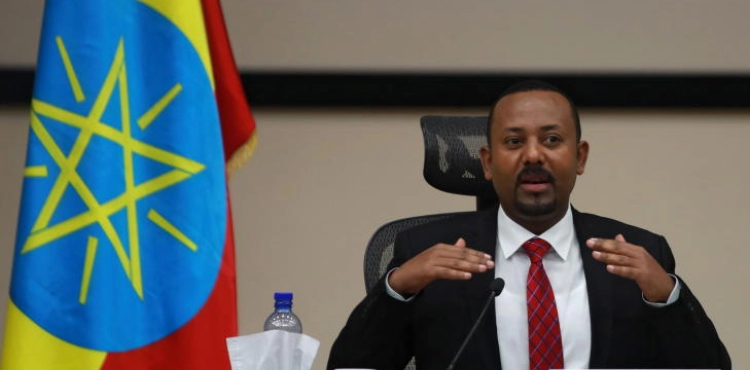Ethiopian Prime Minister Abyei Ahmed confirmed on Monday that the leaders of the Tigray region, who fled after taking control of their capital, Mekele, are being tracked and that they are under fire from the Ethiopian Federal Army, after a conflict that has continued more From three weeks.
For nearly four hours, Abyei answered questions from MPs on Monday, two days after declaring a military victory over the forces of the Tigray People´s Liberation Front, the party that ran this region in the north of the country after it had dominated Addis Ababa for three decades.
Abyei, who won the Nobel Peace Prize in 2019, sent the army to Tigray on November 4, with the aim of replacing the TPLF local authorities with “legitimate bodies,” after the front for months had challenged the authority of the central government.
On Monday, US Secretary of State Mike Pompeo called on the Ethiopian Prime Minister to "completely stop the fighting" and allow "humanitarian teams to enter" the Tigray region "without obstacles."
"It is imperative to resolve the ongoing conflict and keep Ethiopia on the path to democracy," Pompeo wrote on Twitter after telephone consultations with Abyei.
On Saturday evening, Abyei announced that the army had achieved one of its main goals by taking control of Mekele, the provincial capital where the rebel leaders were holed up, and that they were currently "being pursued" to arrest them and refer them to the judiciary.
Speaking to the parliamentarians, Abyei said, addressing the leaders of the Tigray People´s Liberation Front, "I want to hear me: We have seen since yesterday evening (Sunday), towards midnight, from the crisis room, turmoil in the area extending from Hagarai Salam to Abyei Adi," which are two localities located about Fifty kilometers to the west of Mikkeli.
"We did not attack them at night because they took their wives, children, and our captured soldiers with them," he added, warning that "this will not continue."
The almost total blackout on Tigray since the start of the conflict makes independent verification of the information provided by both camps difficult.
Since Saturday, AFP has been unable to communicate with the Tigrayans.
There is still no accurate toll from the conflict, which lasted nearly four weeks, but the International Crisis Group spoke on Friday of "thousands of combat deaths", including "many civilians." More than 43,000 Ethiopians fled Tigray Province to neighboring Sudan.
The international community has repeatedly expressed its concern about the repercussions of the military operation on civilians, and the United Nations spoke of the possibility of "war crimes", but Abyei confirmed Monday that the army did not inflict any civilian casualties during the process of regaining control of Mikkeli and other cities in Tigray.
The Prime Minister affirmed that "Mikkeli is ours," "we will not destroy it," noting that "no one was injured during the operation on Mikeli."
He denied statements by the Tigrayan authorities regarding air strikes that caused the death of many civilians, stressing that "99% (of the projectiles) hit their targets and 99% did not cause collateral damage."
"When we have doubt, we don´t bomb. Especially at night, because we don´t want to kill children, they are our children," he said.
On Sunday, the International Committee of the Red Cross reported that Mekele´s hospitals were overcrowded due to the influx of wounded, 24 hours after the city was announced to be retaken, without specifying whether they were military or civilians.
The Ethiopian Human Rights Commission, an administratively independent body whose director is appointed by the prime minister, expressed Monday its "grave concern" after observing security forces´ surveillance operations based on ethnic origin "despite (the absence) of any legal framework that allows for ethnic profiling." .
On Monday, Abyei stressed that refugees in Sudan can return quickly to Ethiopia, at a time when some of them told AFP at the scene that they were afraid of their return to Tigray, which is now under the control of government forces.
The tension between the TPLF and Abyei has continued to escalate since the latter became prime minister in 2018 and gradually excluded from government the party that for thirty years had dominated the political and security apparatus in the country.
The tension culminated with the holding of elections in Tigray in September that were deemed "illegal" by Addis Ababa, and then with Tigrayans launching an attack on two military bases in the region, which the TPLF denies.












